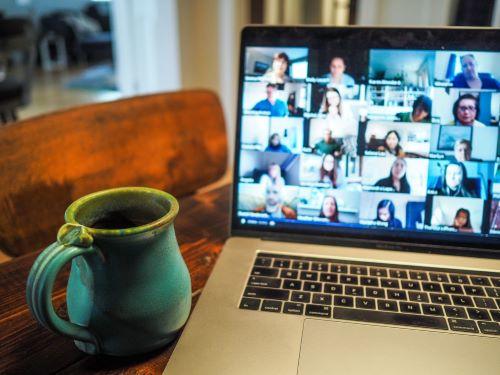Dec. 6, 2021: A strong support system is foundational for people in recovery, but friends and family may not know what to say or how to show up for their loved one.
That’s where Community Reinforcement and Family Training, better known as CRAFT, comes in. OBH helps fund nearly 50 CRAFT programs statewide that teach people skills to motivate loved ones in recovery, and—just as importantly—tend to their own emotional needs.
“When people come to a CRAFT program, usually they’re hurting—they’re really in despair,” said Peggy Chase, a CRAFT facilitator with Embark PCA Recovery Services in Colorado Springs. “They have no idea what to do next. They’re very emotional—they might feel angry. So it’s really important to me to allow people to talk about how they’re feeling.”
Chase, a social worker who has been in recovery for more than 40 years, says she can relate to those conflicting emotions. She draws on her personal experience supporting a partner and parent with substance use disorder to build connection among CRAFT members.
“I know how hard this is, coming from the background I came from,” Chase said. “So many people come from families where there is dysfunction, and often it's a substance-using environment.”
Chase’s empathetic approach has been transformational for Elizabeth, a caregiver and student living in the Denver area. She joined Chase’s virtual CRAFT group shortly after her sibling enrolled in a treatment facility and quickly bonded with her fellow CRAFT members. Elizabeth's name has been changed to respect her privacy.
“There’s a lot of shame in having a family member who’s actively struggling with alcohol,” said Elizabeth. “[The CRAFT] environment has really helped me remove the shame and help me open up and be more honest with myself and others. That’s been a huge learning experience for me, just to see that I’m not alone.”
CRAFT follows a series of weekly lessons, and Chase adapts her teaching to meet the needs and interests of participants. The program focuses on positive reinforcement and communication: praising loved ones to rebuild their self-esteem and using “I statements'' to avoid blame or judgment, Chase said. Participants also learn to successfully disengage with a loved one under the influence of a substance and avoid behaviors that could enable continued substance misuse.
Those skills were particularly valuable to Elizabeth, who says direct communication is “not first nature” for many people with loved ones in recovery.
“When I entered the program, boundaries were something that I really lacked,” she said. “The program has helped me build physical boundaries—how I interact with my loved ones—and emotional boundaries—really confronting and labeling how I’m feeling or how I handled a certain situation. What I’ve learned from this program is how to communicate my boundaries in a healthy way and really stand up for myself.”
Chase cherishes these “championship moments”—times where group members master a new skill. She says storytelling is a key part of the process and helps CRAFT participants learn from one another.
“I love facilitating this class,” she said. “I love the growth and the changes that people experience in it.”
Elizabeth echoed Chase and encouraged anyone in a similar situation to reach out for help.
“The problems that we’re facing are deep, deep-rooted, and they’re not going to fix themselves. Just coming in with ease and grace and really embracing the community that’s been built helps each and every group member.”
Join a CRAFT program
If you or someone you know is interested in joining a CRAFT program, learn more and find a group to join here. For more information, email Jessica Triplett, Prevention Program Manager at the Colorado Department of Human Services, Office of Behavioral Health.
